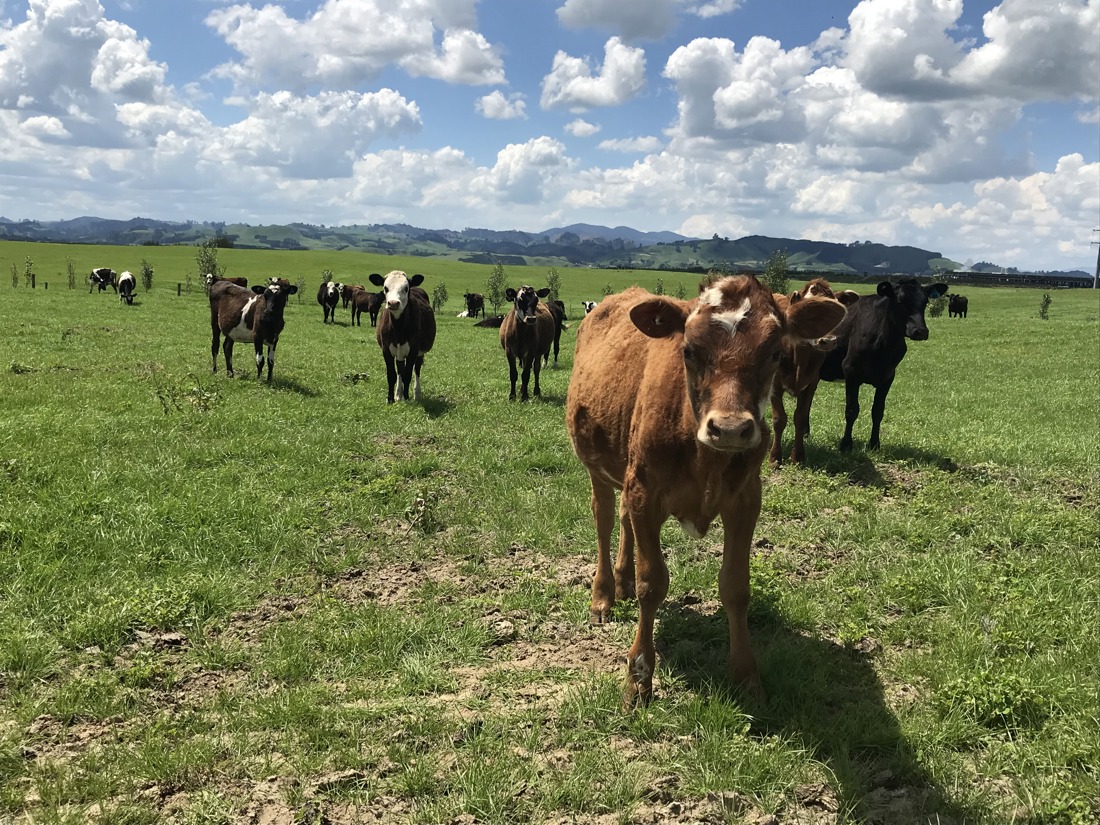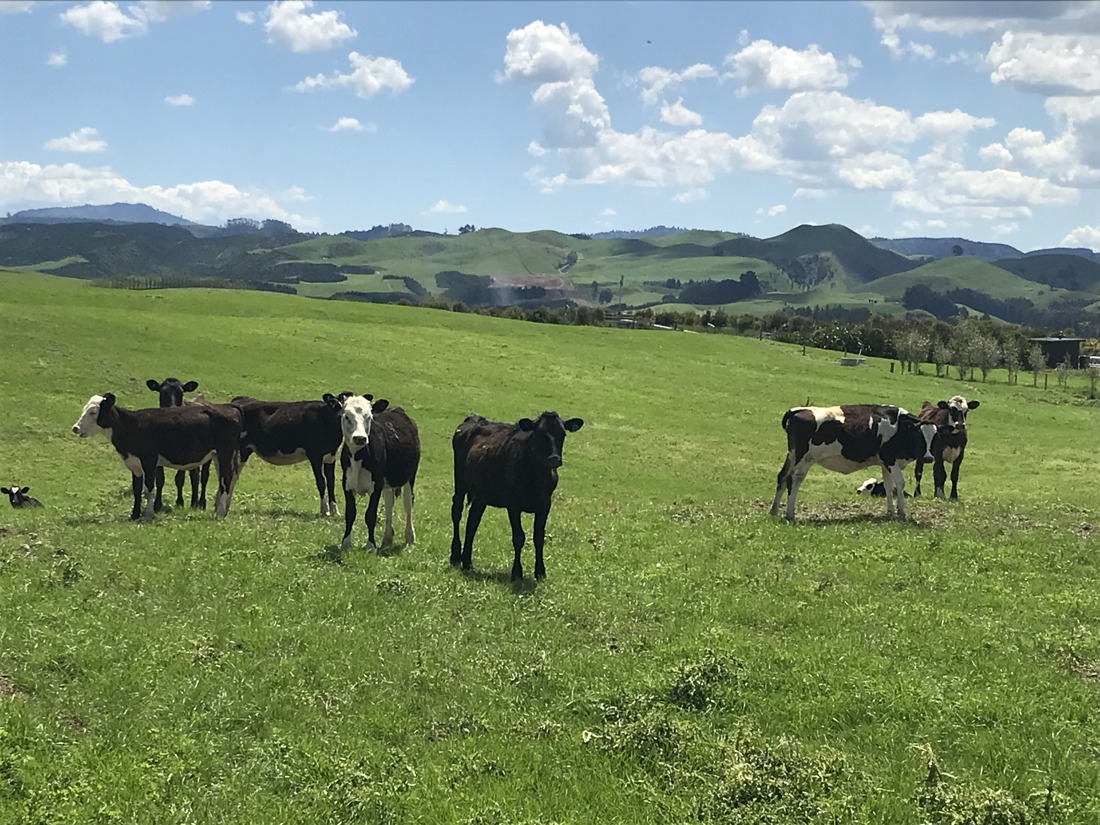Dairy Calf Opportunities, Pāmu
6 min read
Dairy and beef farmers are breeding and rearing quality dairy calves to go into the beef supply chain. Nearly three-quarters of dairy farmers already use beef genetics to improve the value and performance of calves that are surplus to requirements for their dairy business, and some farmers are adapting their systems and management to further increase the value of their surplus calves. Find out more about the dairy calf strategies at Pāmu and what they have changed so far and what they are looking to do in the future.
Pāmu aims to rear 100 percent of their non-replacement calves by 2030. The rearing facility is supplied by 19 dairy farms at their Pastoral Complex in Taupō.
There are 19 Pāmu dairy farms and 44 across the entire portfolio. Previously separate entities, they now have 100 percent integration of dairy and beef. Currently, the herds from these farms are Kiwicross, and calve in Spring and Autumn.
Pāmu works towards increasing the percentage of non-replacement calves reared on farm to reach their goal of 100 percent reared. From the 19 farms, over 11,000 non-replacement calves are born each year. Currently 3,500 of these calves are being reared at Exeter calf rearing, and another 2,000 spring-born calves are reared through external rearers.

Photo credit: Pāmu
A brand-new dedicated calf rearing facility built at their Wairakei farming estate in Taupō.
A significant milestone achieved when 56 percent (goal was 55 percent) of calves born from dairy were reared across the whole portfolio. This figure includes just under 9000 dairy heifer replacement calves.
The ambitious goal is to have 75 percent of all calves born reared or raised by Pāmu.
The ultimate aim is to rear 100 percent of non-replacement calves by 2030.
Pāmu’s number one goal is to produce more desirable calves across all their animals.
Steve Tickner
General Manager – Livestock Commercial
The mating programme aims to strike a balance between desirable traits for dairy-beef rearing and adequate genetic gain for dairy replacements. By focusing on high-quality replacements, the herd’s genetic merit is increased. Generating replacements from a smaller proportion of the herd leads to more beef calves by mating lower genetic merit animals with beef sires.
The data collected from Pāmu’s own breeding company, Focus Genetics, provides valuable insights into sire selection, and they breed and select bulls for desired traits. Specifically selecting for dairy-beef specialist sires with unique traits for a dairy-beef operation is crucial. These traits include short gestation, ease of calving, and progeny that suckle well, have high growth rates and superior meat quality.
The Hereford breed is easily recognisable due to its distinctive coat markings at birth, making identification easier. While Pāmu continues to use Hereford bulls, and other breeds, in the short term, over time the use of other breeds will be more prevalent as selective breeding increases desirability, phasing in Focus Genetics sires over the herd.
The farm teams have experienced high costs and low conception rates associated with sexed semen. Pāmu’s strategy is focused on increasing their six-week in-calf rate before fully optimising the benefits of sexed semen.

Photo credit: Pāmu
Early-born dairy-beef calves are more valuable because they allow more time for growth on high quality feed before the first winter. For Pāmu farms, these calves are typically born in late July or August.
To optimise breeding decisions and calves born from these decisions, Pāmu considers all cows, including Jerseys. As they work towards the goal of having 100 percent calves reared, there’s a need to manage less desirable calves – such as Jersey calves born later in the season.
Pāmu is carefully analysing the true cost to the business associated with these calves. In their dairy-beef sire programme, Angus plays a crucial role. Angus bulls are known for easier calving and superior growth rates. Pāmu are committed to making this system work effectively.
Pāmu is actively working towards increasing the number of calves reared on their farms while simultaneously investing in infrastructure and prioritising profitability. They navigate the ebb and flow of the commercial market, always seeking improvement. Each year, Pāmu aims to enhance its capacity to rear more calves.
Now’s the perfect time to check in, plan, and set up for a strong season. We’ve pulled together smart tips and tools to help you stay ahead all winter long.
Whether you prefer to read, listen, or download handy guides, we’ve got you covered with trusted tools to support your journey every step of the way.
Put our proven strategies and seasonal tools to work. Boost production, support animal health and watch your profits hum.
Tools that are backed by science, shaped by farmers and made for this season.
That’s Summer Smarts.
Autumn Smarts brings together the research-backed tools that build resilience and boost performance.